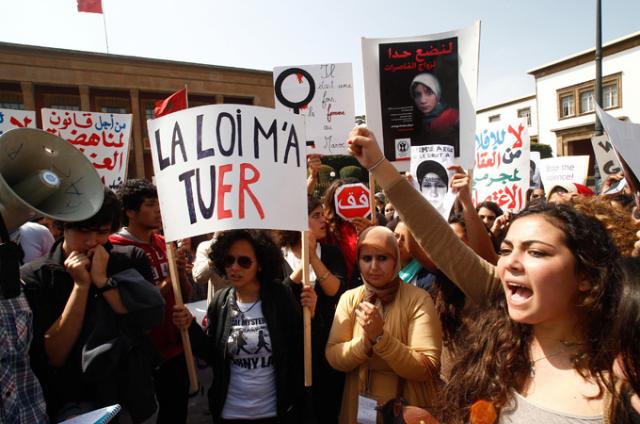24th January 2014
The Moroccan government has said it plans to change a law that allows rapists to avoid charges if they marry their victims.
The move comes nearly a year after 16-year-old girl committed suicide after being forced to marry her alleged rapist.
Women's rights activists on Tuesday welcomed Justice Minister Mustapha Ramid's announcement, but said it was only a first step in reforming a penal code that does not do enough to stop violence against women in this North African kingdom.
A paragraph in Article 475 of the penal code allows those convicted of "corruption" or "kidnapping" of a minor to go free if they marry their victim and the practice has been encouraged by judges to spare family shame.

The suicicde of a teenager forced to marry her alleged rapist triggered protests and calls for legal reform [AP]